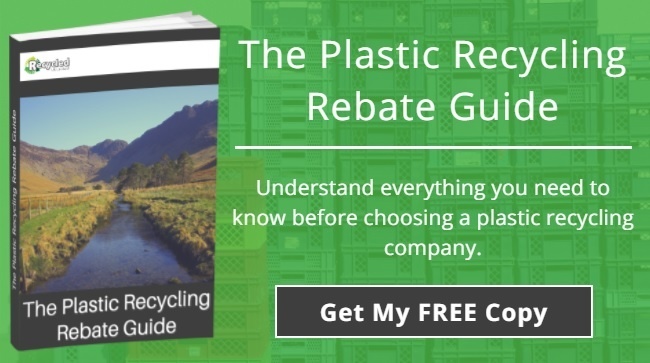
It may sound counterintuitive for a plastic recycling company to be encouraging you to reduce the amount you have to recycle, but this is the surest way to increase your profits from waste management. At Recycled UK we encourage a sustainable approach to recycling. This, of course, involves the maximum amount of recycling and gaining the best possible rebate from your scrap. But it also involves taking a look at how much plastic you recycle, and thinking about what can be reused.
The UK Waste Management Hierarchy
In 2005, representatives of a number of UK industry sectors devised the Coulthard Commitment1; a voluntary agreement designed to increase environmental awareness and sustainable use of plastic products. The agreement and associated targets are reviewed regularly, with the current plan outlining targets up to 2025.
The commitment outlines a waste management hierarchy, with different activities given in order of importance. These are:
1. Prevention
2. Reuse
3. Recycling
4. Recovery
5. Disposal
We won’t go into all of these points in detail in this article. Suffice to say that the bulk of our work encompasses points three and four – recycling and recovery. Our job is to ensure that as little as possible plastic end up in landfill, and the best possible use is made of recyclable plastic scrap.
However, the job of environmental sustainability begins with prevention and reuse, which are the areas the Coulthard Commitment recommends most resources are targeted. These areas are also where businesses can make some attractive savings.
The following strategies can help businesses reduce the amount of plastic that reaches the recycling stage:
1) Encourage A Culture Of Sustainable Use
Most Brits under the age of 45 will have grown up with a culture of recycling. It will be a familiar thing to recycle plastic bottles, packaging and pallets, whether at work or at home. Sustainable, or thrifty use is a different prospect altogether, and this involves a proactive approach at the level of workplace culture. To get a workforce into the habit of thinking in terms of prevention and reuse, symbolic anti-waste policies can be introduced. These could involve a ban on disposable plastic cups at the factory coffee machine, or a switch from plastic to paper bin liners for office waste paper (recycling!) baskets.
2) Reuse Where Possible
Many types of plastic packaging can be reused more than once. For instance, reusable plastic bags are now playing a larger role in the retail business than previously. In logistics and warehousing, reusable plastic crates reduce wastage, and flexible transport containers reduce dependence on pallets and excessive plastic packaging.
3) Invest In Lightweight, Recycled Plastics
Lightweight plastic products are becoming increasingly popular. In this context, ‘lightweight’ products may weigh as much and be as sturdy as any other product. Lightweight simply means that less plastic is used in production. Examples of innovative lightweight plastic packaging products include reusable milk bottles, childproof closing caps, wrapping materials and more. Some lightweight materials have 40% less plastic than their non-lightweight equivalents.
4) Adopt A Comprehensive Plastic Scrap Recycling Policy
When recycling can’t be avoided, it’s important that the highest amount of plastic is recycled as possible. It is a sad state of affairs that in 2017, more than 25% of recyclable plastics in the UK still end up in landfill. Adopting a zero landfill policy is a good way to plant a flag in the sand and demonstrate a commitment to recycling. Recycling can be encouraged by making it easy for your workforce to do so, for instance by setting up container bins for different grades and colours of plastic.
Download Our Free Recycling Rebate Guide
We offer a flexible plastic scrap recycling service for dozens of commonly used types of plastic. We work with your business model to make recycling as convenient and as profitable as possible, offering market leading prices for all grades of plastic. For more information about plastic recycling rebates, please take a look at our Plastic Recycling Rebate Guide, which can be downloaded for free by clicking here.
To speak with one of our team or to arrange a site audit, please call 0845 603 2397, or email info@recycleduklimited.com.


